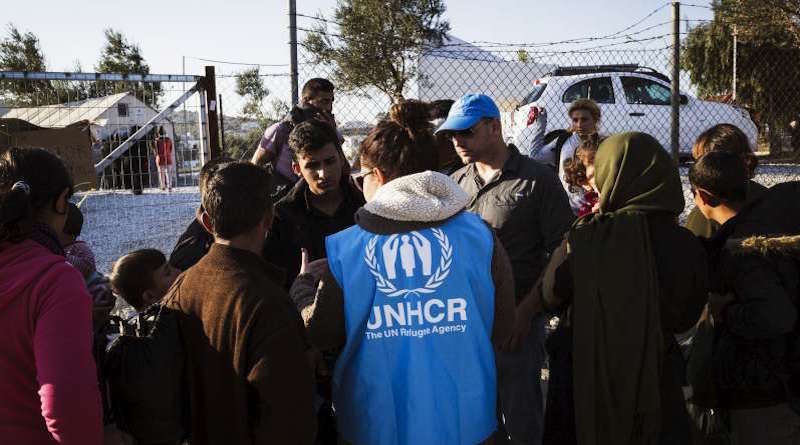UNHCR redefines role in Greece as EU-Turkey deal comes into effect
UNHCR officials express their concern that the EU-Turkey deal is being implemented before the required safeguards are in place in Greece.
UNHCR spokesperson Melissa Fleming, during a press briefing on March 22 in Geneva said: “At present, Greece does not have sufficient capacity on the islands for assessing asylum claims, nor the proper conditions to accommodate people decently and safely pending an examination of their cases. UNHCR is not a party to the EU-Turkey deal, nor will we be involved in returns or detention. We will continue to assist the Greek authorities to develop an adequate reception capacity.
Uncertainty is making the new arrivals nervous. Many still hope that the border will open. Many have run out of money. There is also an urgent need for information. The Greek police have been distributing leaflets in Arabic and Persian informing people that the border is closed and advising them to go to camps where better conditions are provided. But the capacity of nearby camps has been reached, and more camps need to be opened including for candidates for relocation.
Meanwhile, on the Greek mainland in Idomeni, an estimated 10,000-12,000 people, including some 4,000 children, are camping in dire conditions at an informal site near the border, close to a railway track. The majority are families, many of them with young children. Hygiene is a major concern, negatively impacting people’s health. People are burning plastic and rubbish to keep warm. The general environment is very challenging. UNHCR and partners have been working to improve capacity by providing family-sized and large tents for up to 2,400 people and collecting rubbish. Mobile latrines have been put in place, but they are not enough. Tents have been provided for vulnerable families and individuals, including 30 unaccompanied minors. UNHCR has been visiting detention centres where unaccompanied children are in protective custody. Food distribution has been arranged by several organisations (sandwich and a drink), three times a day, as well as the distribution of milk, baby food, and diapers.
SOURCE/PHOTO: UNHCR




